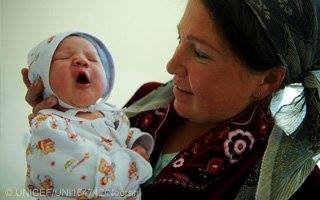Globally, about 800 women die every day in the process of giving birth.
Every pregnant woman hopes for a healthy baby and an uncomplicated pregnancy. The poor health of the mother, including diseases that were not adequately treated before or during pregnancy, is often a factor contributing to newborn deaths or to babies born too early and/or with low birth weight, which can cause future complications.
The early years of a child’s life are very important for his or her health and development. Healthy development means that children of all abilities, including those with special health care needs, are able to grow up where their social, emotional and educational needs are met. Having a safe and loving home and spending time with family―playing, singing, reading, and talking―are very important. Proper nutrition, exercise, and sleep also can make a big difference.
Effective Parenting Practices
Parenting takes many different forms. However, some positive parenting practices work well across diverse families and in diverse settings when providing the care that children need to be happy and healthy, and to grow and develop well. A recent report looked at the evidence in scientific publications for what works, and found these key ways that parents can support their child’s healthy development:
Responding to children in a predictable way
Showing warmth and sensitivity
Having routines and household rules
Sharing books and talking with children
Supporting health and safety
Using appropriate discipline without harshness
Parents who use these practices can help their child stay healthy, be safe, and be successful in many areas—emotional, behavioral, cognitive , and social. Read more about the report here.
Positive Parenting Tips
Get parenting, health, and safety tips for children from birth through 17 years of age
Developmental Milestones
Skills such as taking a first step, smiling for the first time, and waving “bye-bye” are called developmental milestones. Children reach milestones in how they play, learn, speak, behave, and move (for example, crawling and walking).
Children develop at their own pace, so it’s impossible to tell exactly when a child will learn a given skill. However, the developmental milestones give a general idea of the changes to expect as a child gets older.
As a parent, you know your child best. If your child is not meeting the milestones for his or her age, or if you think there could be a problem with your child’s development, talk with your child’s doctor and share your concerns. Don’t wait.
Hi! I am a robot. I just upvoted you! I found similar content that readers might be interested in:
https://www.cdc.gov/ncbddd/childdevelopment/facts.html
Developmental Monitoring and Screening
physician and child
A child’s growth and development are followed―or monitored―through a partnership between parents and health care professionals. At each well-child visit, the doctor looks for developmental delays or problems and talks with the parents about any concerns the parents might have. In addition, doctors conduct developmental screening. Developmental screening is a short test to tell if children are learning basic skills when they should, or if they might have delays.
Children with special health care needs should have developmental monitoring and screening just like those without special needs. Monitoring healthy development means not only paying attention to symptoms related to a child’s condition, but also to the child’s physical, mental, social, and emotional well-being.
If a child has a developmental delay, it is important to get help as soon as possible. When a developmental delay is not found early, children must wait to get the help they need. This can make it hard for them to learn when they start school.
🙂